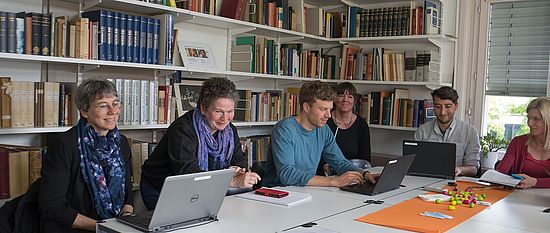Welcome to the Institute for Biomedical Ethics
The Institute for Biomedical Ethics at the University of Basel (IBMB) is a vibrant centre for research on and teaching about ethical issues in medicine and the biosciences. The Institute was founded in 2011 and is affiliated with both the Science and Medical Faculties at the University of Basel – a unique situation for an ethics institute in Switzerland.
The IBMB has over a dozen PhD students and a team of senior researchers and post-docs working on a wide variety of projects in biomedical ethics. The IBMB’s researchers are committed to an interdisciplinary endeavour aimed at finding ethical solutions to dilemmas raised by both new and traditional practices in biomedical ethics, including cutting-edge technologies, organ donation, palliative care, and research in developing countries, to name only a few. Our research combines empirical fieldwork, including interviews with stakeholders and members of the public, and normative, theoretical analysis. IBMB researchers have won several grants from the SNF, SAMW and other major funders and frequently publish in major bioethics, medical and science journals.
IBMB members are also highly involved in teaching, providing ethics courses for undergraduate students and postgraduate scientists and doctors. A variety of courses are open to the public, including the twice-yearly “Contemporary Issues in Bioethics” lecture series that integrates a lively dialogue with visiting speakers.
If you are interested in collaborating with us, are looking for a PhD student or post-doc job, need ethical input on your own project, or would like us to provide ethics related courses/workshops for your students or research team, please get in touch with us!
News
Contact

Institute for Biomedical Ethics
Bernoullistrasse 28 - 2nd Floor
4056 Basel
Switzerland
Tel: +41 61 207 17 86











